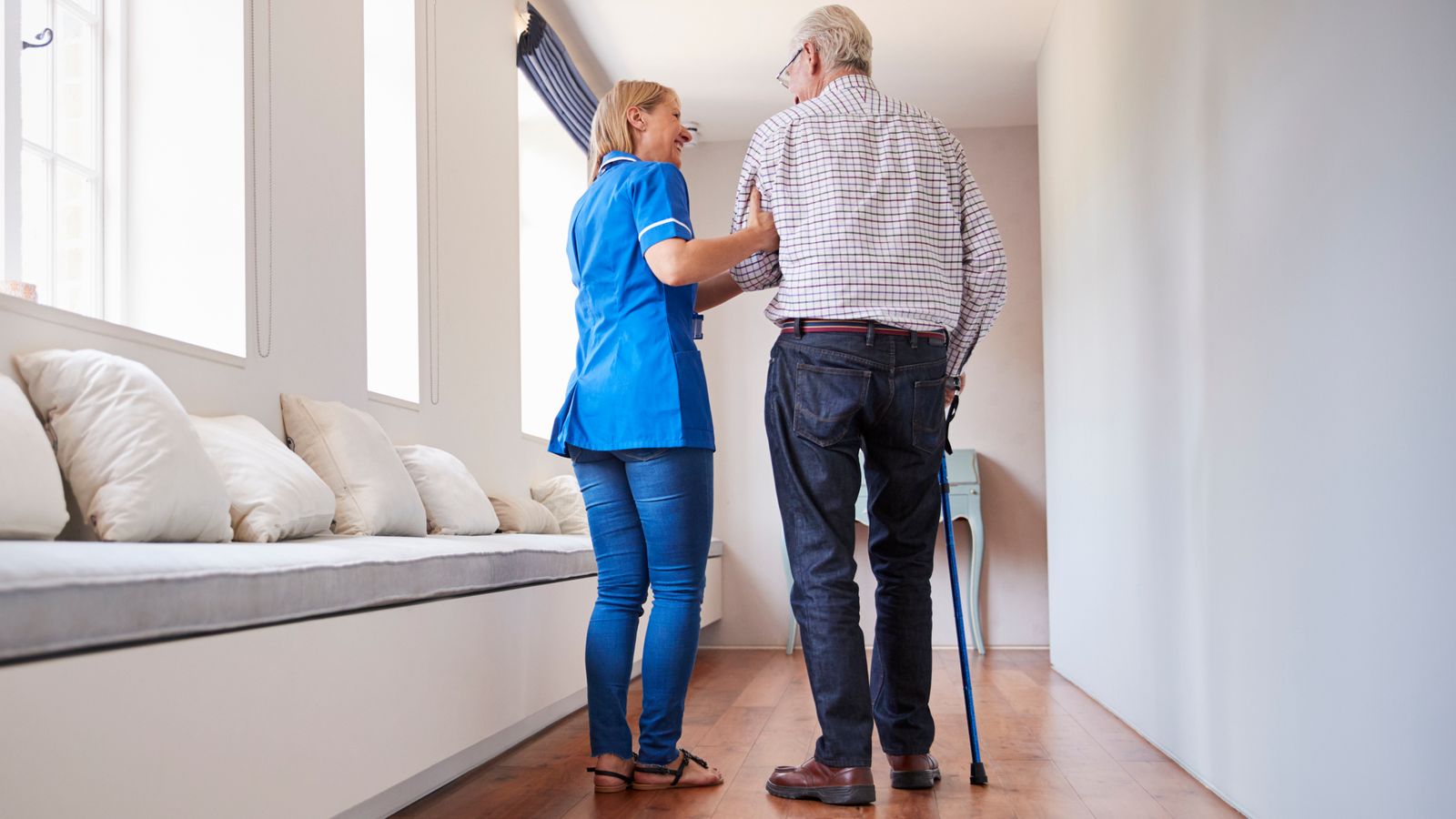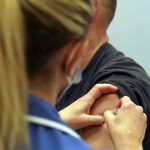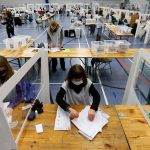Care home residents will now only be allowed three named people who can visit regularly – to try to protect them from the Omicron variant.
Those three named people will be allowed to visit the care home until the rules change to allow more and different visitors. An essential caregiver will also be allowed to visit with them.
The government said it is changing the rules for care home visits “to balance the current COVID-19 risk and the need to keep people safe in line with clinical advice”.
Staff testing will also be increased from two lateral flow tests per week to three, as well as a weekly PCR test.
Fully vaccinated residents who are leaving their care home for a visit will be asked to take a lateral flow test on alternate days for two weeks after a visit.
Those who are not fully vaccinated will be expected to isolate after visiting outside the home.
Previous rules on care home visits
COVID-19: Omicron is by far the most worrying form of coronavirus we’ve seen so far – but we shouldn’t be too afraid
COVID-19: UK govt to keep ‘restrictions under review’ after ‘very challenging new information’ on Omicron, says Gove
COVID-19: Two jabs offer little protection against Omicron – but booster makes vaccine at least 70% effective
The most recent care home visitor guidance meant there was no restriction to the number of visitors but they had to make arrangements before turning up and had to receive a negative lateral flow test on the day.
Residents only had to isolate if they had an emergency stay in hospital, tested positive for COVID-19 or if a visit was later deemed high-risk.
But the government has decided to tighten the rules as the Omicron variant has seen cases doubling every two to three days, with the UK Health Security Agency (UKHSA) estimating there are now 10,000 cases that are more transmissible.
Please use Chrome browser for a more accessible video player
The UKHSA also said there could be one million Omicron cases in the UK by the end of December.
“Plan B” restrictions were announced this week, with masks now having to be worn in most indoor spaces, the work from home mandate reintroduced and COVID passes required for large events.
Additional booster deployment
The government said it is also expanding the deployment of specialist vaccination teams to guarantee all care home residents and staff, as well as people who are housebound and their caregivers, are offered the booster.
Those most at risk will be prioritised for the jab, it said.
Care homes will be able to request follow-up booster visits from vaccination teams for staff and residents, while home visit payments for GPs will be increased to ramp up the home care programme.
Please use Chrome browser for a more accessible video player
More than 70% of older care home residents have already received a booster jab and 97% of them have been visited by vaccination teams, according to the government.
Those who have not yet been visited, normally due to an outbreak, “will receive visits shortly”, the Department of Health and Social Care (DHSC) said.
£300m more for care work recruitment and retention
As part of the push to protect those in the care sector from the Omicron variant, the government has also announced it will put £300m more into supporting recruitment and retention.
This can be used to pay bonuses and bring forward planned pay rises for care staff, fund overtime as well as staff banks increasing workforce numbers until the end of March.
This is in addition to the £162.5m announced in October, the DHSC said.
The sector has seen an exodus of workers leave after the government made it mandatory for them to be fully vaccinated to work in a care home in early November.
Follow the Daily podcast on Apple Podcasts, Google Podcasts, Spotify, Spreaker
Health Secretary Sajid Javid said: “This new funding will support our incredible workforce by recruiting new staff and rewarding those who have done so much during this pandemic.
“Boosting the booster rollout in social care and updating the visiting guidance will help keep the most vulnerable people in our society safe from the virus this winter.”






















